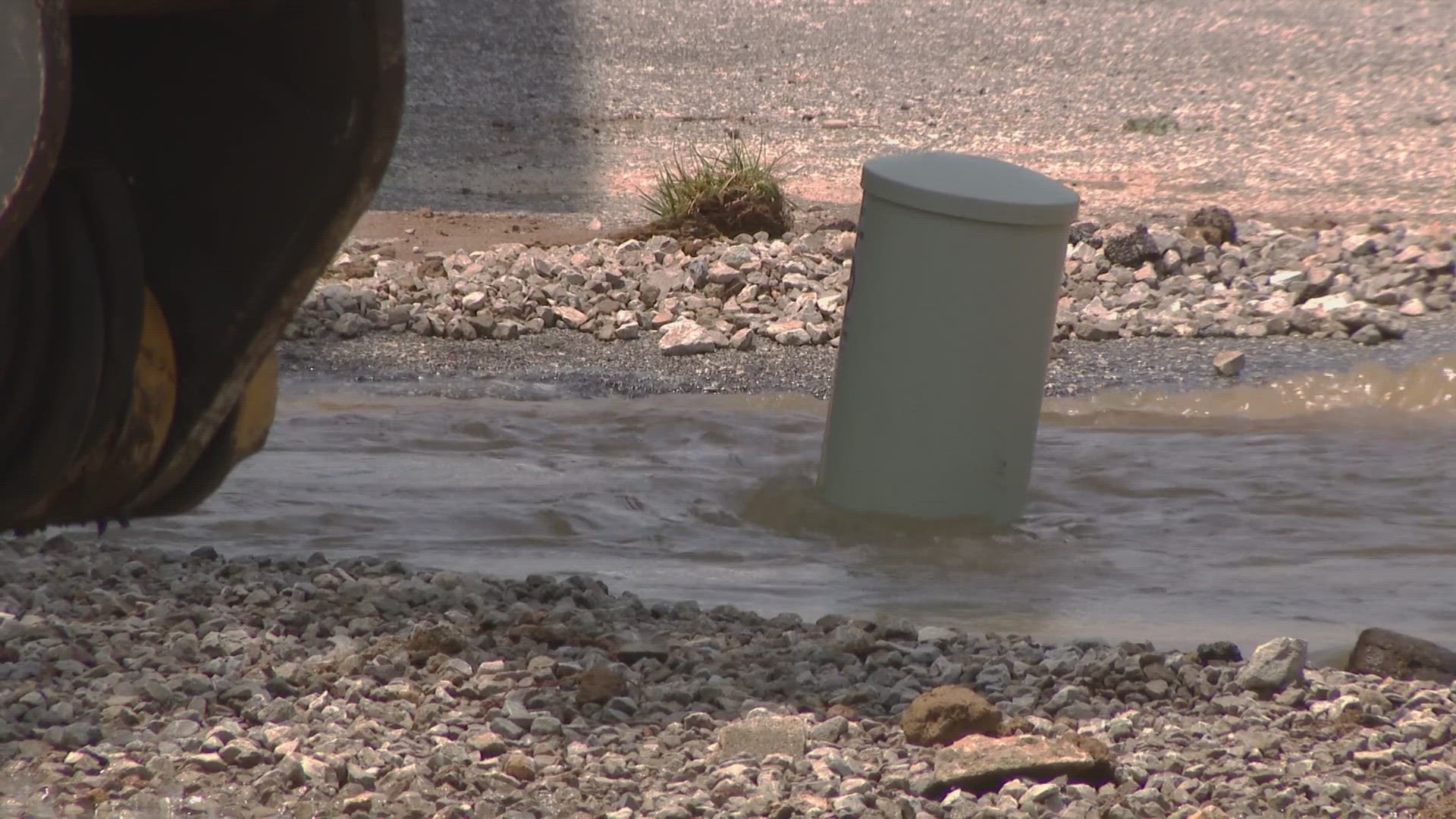ST. LOUIS — The ripple effects of a large water main break in south St. Louis last week are still being felt, even after a boil water advisory was lifted in the area.
It all started with a water main break on Friday at Donovan and Lansdowne Avenues due to changes in pressure. Fifteen others followed soon after, and city crews are still working to repair them.
Some have buckled pavement while others resulted in water bubbling up and onto roadways.
As of 4 p.m. Thursday, the following breaks have been repaired or are being worked on.
Repairs complete:
- 5311 Itaska
- 7133 Winona
- Donovan and Lansdowne
- Clifton & Rhodes
- 5641 Eichelberger
- 5541 Lansdowne
- 4519 Carter
- Plainview & Chippewa
- Lindenwood & Hampton
- 6824 Magnolia
- 6503 Bradley
- 5711 Finkman
- Compton & Eiler
In progress:
- Macklind & Walsh
- Arsenal & Jamieson*
- Wilson & Hampton
- 6861 Southwest
*Arsenal from Jamieson to Hudler will remain closed to traffic until repairs have been completed.
Working on a long-term fix
City leaders said the breaks of the city's aging infrastructure. It's something they say needs to be addressed.
They propose a water rate increase to cover the $400 million price tag to fix the city's water infrastructure for the long term. St. Louis Mayor Tishaura Jones said it's a problem the city can't afford to avoid anymore.
The conversation started after a 60-inch water main break flooded Interstate 64 last month.
Now, Jones is pushing for a water rate hike through a bill currently before the Board of Alderman. Board Bill 49 would implement a two-time, phased-in rate increase of $5 per month.
5 On Your Side asked Jones if there were any other options outside of water bills increasing that the city could use, like money from the Rams settlement or American Rescue Plan Act (ARPA) funds.
She said ARPA funds from the federal government are already allocated, but money could come from the state.
"They have over $100 million EPA allocations through the bipartisan infrastructure law, and we've been in conversations with the EPA on other funding sources as well," Jones said.

